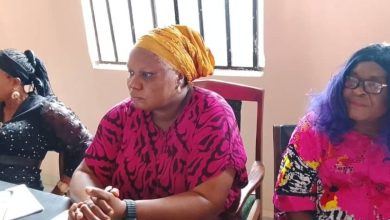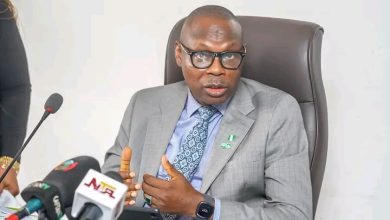How Telemedicine Helped Save a Mother and Baby in Anambra
A mother’s life was saved through a screen in rural Anambra, thanks to telemedicine.
Technology is making healthcare easier, with doctors now able to guide emergency births from remote places.
Chika Onyekonwu had a smooth pregnancy and attended regular checkups at Nneogidi Primary Health Centre (PHC) in Agulu, Anambra State. Everything seemed fine until her due date in May 2025, when her blood pressure suddenly became dangerously high, putting her and her baby at risk.
Thanks to Anambra State’s new telemedicine program, help came quickly. The head of the health center, Nneka Offodile, said she contacted Dr. Agba, a doctor working remotely through the system. He gave instructions, prescribed medicine, and guided the delivery from afar until the baby was safely born.
Offodile was thankful she didn’t have to send Chika to another hospital, which could have been risky in the middle of the night. Chika, now a happy mother, said, “Without telemedicine, I don’t know what would have happened. I now trust primary healthcare more than ever.”
What Is Telemedicine?
Telemedicine allows people to see doctors using phones, computers, or the internet instead of traveling to the hospital. It includes video calls, chats, remote checkups, and even digital prescriptions.
This system is especially helpful in rural areas where there aren’t enough doctors. In Nigeria, where many communities struggle with poor access to healthcare, telemedicine is becoming a useful solution.
Anambra’s Plan
Anambra launched its telemedicine program in November 2024 as part of Governor Chukwuma Soludo’s plan to improve health services. It started in one health center and later expanded to ten others. The idea is to connect small clinics with central doctors using a “hub-and-spoke” model. Forty-two doctors were hired and trained to help.
Health Commissioner Dr. Afam Obidike said, “We’re using technology to solve the problem of not having enough doctors in many areas.”
Real-Life Impact
Doctors have used telemedicine to manage emergencies, such as difficult childbirths or dangerous health conditions. One doctor said he helped save a baby in the middle of the night from a distant clinic.
Patients are now returning to primary health centers because they trust the service more. Health worker Beatrice Iloanya explained, “Before, people ignored PHCs. Now they come back because they know doctors are available through telemedicine.”
The system also helps uncover serious cases. In Obosi, a case of gender-based violence that had been wrongly handled by a private clinic was caught and referred to the right authorities thanks to a remote consultation.
Challenges Still Exist
Despite the success, there are problems. Internet connections in some areas are weak, making video calls difficult during emergencies. In one case, poor network during the delivery of twins made it hard to reach a doctor, but the babies were eventually delivered safely.
Also, not all health workers are used to digital tools. To solve this, the government is training staff regularly. Some patients are still unsure about using the system, preferring to see doctors face-to-face.
Power supply is another challenge, but the government has installed solar systems in many clinics. They’ve also given out modems to help keep internet service steady.
Looking Ahead
The government is thinking about adding a small fee in the future to keep the program running. They have also provided 350 telemedicine devices to health centers across the state.
To support better internet service, Anambra allowed telecom companies to lay hundreds of kilometers of fibre-optic cables. Free Wi-Fi has been set up in some areas, and the government plans to improve internet speed by building an Internet Exchange Point.
Dr. Chukwudi Njelita from Dunukofia said once strong internet reaches rural areas, telemedicine will become even more effective.
Aiming for Better Healthcare for All
This program is part of Anambra’s effort to make sure everyone gets good healthcare, no matter where they live. The next step is to allow patients to connect with doctors from their homes.
“If everything continues like this,” said Dr. Obidike, “Anambra’s telemedicine journey could be a model for all of Nigeria.”



